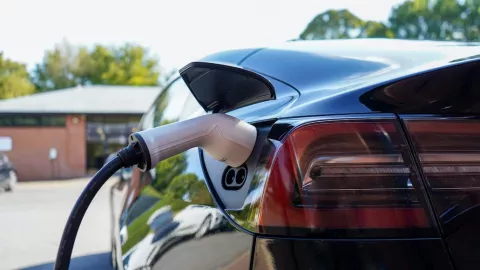

Lansmont
Batteries have become an integral part of our daily lives, powering devices that keep us connected and entertained. With increasing efficiency and higher energy densities, batteries have become more powerful, but this also means that there are potential risks during shipping and handling. Mishaps can lead to the release of huge amounts of energy, which can be dangerous.
To ensure the safe transport of lithium-ion batteries, they must be tested to comply with international shipping standards per UN/DOT specifications. Lansmont has the expertise and equipment to perform these tests, including UN/DOT 38.3's T3 (Vibration), T4 (Shock), and T6 (Impact) tests.
However, transportation hazards are not the only dynamic conditions that batteries must survive. In automotive electric and hybrid applications, batteries will be exposed to endless vibration as a matter of course.
Fortunately, a variety of industry specifications exist to test batteries and ensure they can stand up to these conditions, including:
- IEC 62133 (Vibration, Drop, Shock)
- SAE J2464 (Shock, Drop, Data Acquisition)
- UL 2054 (Shock, Vibration)
- UL 2202 (Vibration, Drop)
- UL 2231 (Drop, Shock, Vibration)
Lansmont offer a comprehensive range of test and measurement solutions to ensure the safe transport and durability of lithium-ion batteries.
With our expertise and equipment, we can help businesses comply with international shipping standards and meet the rigorous conditions of everyday use in various applications. Protect your batteries and your customers with Lansmont's reliable and trustworthy testing solutions.